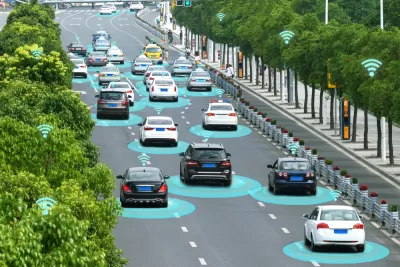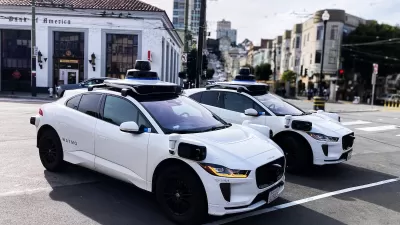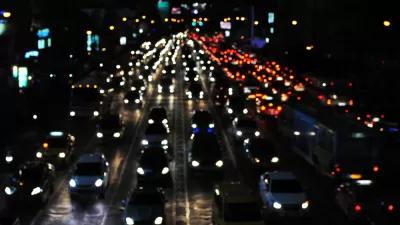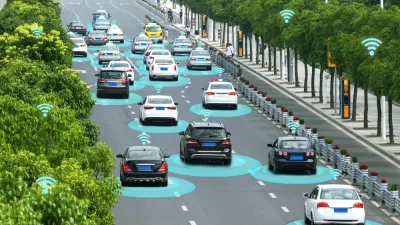How we pay for our roads will play a big role in what happens to cities when autonomous vehicles become common place in cities.

The advent of the car changed cities forever. The Economist now posits planners have a chance to change cities again with the advent of autonomous vehicles. "Urban freeways, commuter suburbs and mandatory parking requirements reshaped cities. Now AVs promise to transform them once again, undermining many car-centric assumptions made in the 20th century, opening up new possibilities and turning urban-planning debates upside down," according to an article in The Economist. But in some ways the arguments are the same. If drivers don't pay directly for the roads, autonomous cars could further spread out our cities.
"A switch to shared robotaxis could increase vehicle occupancy rates, reducing the number of vehicles needed to move people around and easing congestion," according to the article. On the other hand, it posits the potential issue of induced demand that might be created when people see the opportunity presented by newly open roads, something the author calls a "nightmare scenario."
The author suggests that the technology offers an opportunity for a more subtle form of pricing of roads "… taking account of time, place, vehicle type, number of riders, traffic levels and so forth, to maximise sharing and minimise congestion."
The piece takes a guardedly techno-optimistic view of the future, "…In retrospect, many drawbacks associated with cars in the 20th century arose from a failure to price their use properly. With appropriate pricing, AVs should be able to avoid many of those problems, giving urban planners and policymakers a much wider range of choices about how cities and transport systems could be structured." It remains to be seen whether future generations will be able to price their roads in more equitable ways than we did.
FULL STORY: A chance to transform urban planning

Alabama: Trump Terminates Settlements for Black Communities Harmed By Raw Sewage
Trump deemed the landmark civil rights agreement “illegal DEI and environmental justice policy.”

Planetizen Federal Action Tracker
A weekly monitor of how Trump’s orders and actions are impacting planners and planning in America.

The 120 Year Old Tiny Home Villages That Sheltered San Francisco’s Earthquake Refugees
More than a century ago, San Francisco mobilized to house thousands of residents displaced by the 1906 earthquake. Could their strategy offer a model for the present?

In Both Crashes and Crime, Public Transportation is Far Safer than Driving
Contrary to popular assumptions, public transportation has far lower crash and crime rates than automobile travel. For safer communities, improve and encourage transit travel.

Report: Zoning Reforms Should Complement Nashville’s Ambitious Transit Plan
Without reform, restrictive zoning codes will limit the impact of the city’s planned transit expansion and could exclude some of the residents who depend on transit the most.

Judge Orders Release of Frozen IRA, IIJA Funding
The decision is a victory for environmental groups who charged that freezing funds for critical infrastructure and disaster response programs caused “real and irreparable harm” to communities.
Urban Design for Planners 1: Software Tools
This six-course series explores essential urban design concepts using open source software and equips planners with the tools they need to participate fully in the urban design process.
Planning for Universal Design
Learn the tools for implementing Universal Design in planning regulations.
Clanton & Associates, Inc.
Jessamine County Fiscal Court
Institute for Housing and Urban Development Studies (IHS)
City of Grandview
Harvard GSD Executive Education
Toledo-Lucas County Plan Commissions
Salt Lake City
NYU Wagner Graduate School of Public Service





























